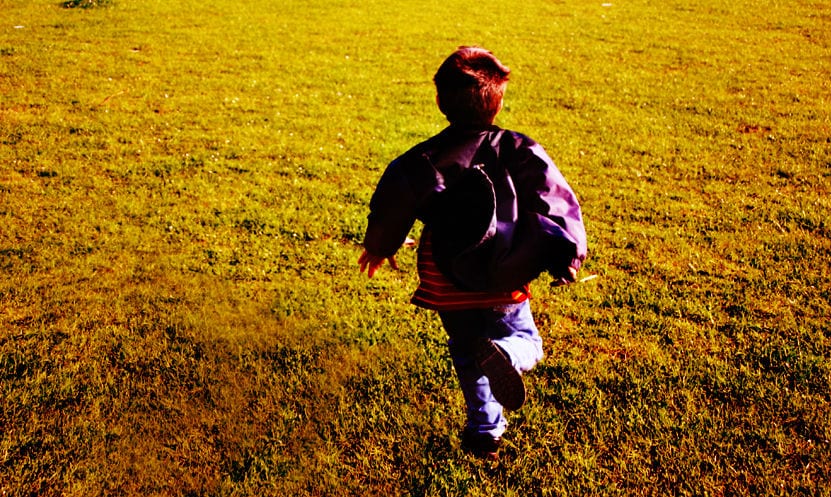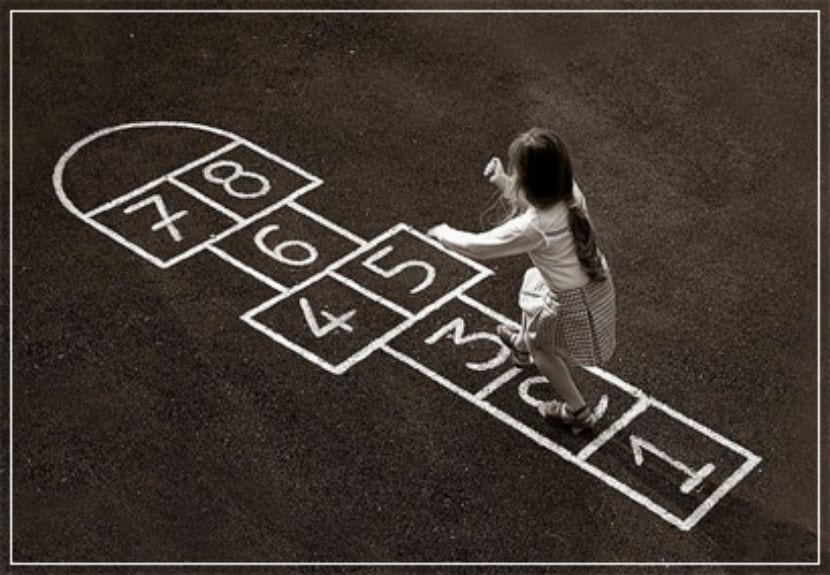
Physical activity is essential for our health and of course, for our children.
Children currently exercise little. It is a complaint that we have all heard at some time from an expert.
Surely we ourselves have also blamed technological advances, the internet, mobile phones or online games that our children spend the day sitting in front of the screen and are increasingly sedentary and even have worse relationships.
That we introduce exercise into the daily routine of our children is a good way for them to continue exercising as adults.
Benefits of exercising regularly
Physical activity in children is essential for the prevention of many chronic diseases.
Exercise favorably influences
Growth
Exercise is essential for bones to develop properly. Bone density increases, because exercise makes calcium better captured and deposited in the bone, making it stronger.
Likewise, exercise has a fundamental role in muscle development, a muscle that does not move atrophies ...

Prevention of overweight and obesity
Regular exercise helps the body burn fat, keeping weight within reasonable age limits.
The heart and lungs
The heart and lungs are responsible for oxygenate our blood and distribute it throughout the body.
When we do intense exercise, the cardiorespiratory system must adapt to continue maintaining that vital function. Ensuring that the body responds to exercise and recovers afterwards.
This ability to respond to efforts can be strengthened from infancy by encouraging the child to exercise regularly.
Bowel function
Exercising regularly improves digestion and helps establish a proper bowel rhythm.
Defenses
Moderate physical exercise improves the immune response.
Increases circulating white blood cells, defends the body from the development of cancer cells and infections caused by viruses, bacteria and parasites.
When exercising, we slightly increase body temperature, which makes it more difficult for viruses or bacteria to grow freely.
Prevention of diabetes and cardiovascular disease
It reduces the amount of triglycerides and LDL cholesterol in the blood and increases the levels of HDL (good) cholesterol. Decreasing the risk of cardiovascular diseases in adulthood.
Reduces the risk of suffering Diabetes type II and high blood pressure.

Coordination
Move the body with its different segments and manipulate and control objects at the same time (a ball, a racket ...) It helps our son's psychomotor development, improving his coordination, balance, reflexes, spatial perception or agility.
Psychological and social development
With the game and the sport the child will learn to play different roles in the group, to assume responsibilities and to understand and respect established norms. You will live new situations, new feelings. Assuming and overcoming the different challenges and their possible successes or failures.
Reduce stress and anxiety
Exercising produces the release of "endorphins." These are the hormones responsible for causing a feeling of well-being and vitality. At the end of the exercise we have all felt that intense feeling of well-being ...
So exercising helps to cope with problems in a more positive way.
In the same way that physical activity in children makes be entertained and forget for a moment about daily activities that are stressful, such as studies, exams ...

Prevents harmful habits
Adolescence is a difficult time, in which it is not uncommon for them to want to try new things. Peer pressure is very strong and it is difficult for parents to prevent certain behaviors.
It is the moment when tobacco or drugs are most seductive for the human being.
Un boy or girl Those who do sports regularly realize that these habits prevent them from making the effort they need to maintain the appropriate level in the sport or activity they do, so it is usually more difficult for them to start in them.
Prevent and combat sedentary lifestyle
Sedentary lifestyle is one of the epidemics of our century, causing many health problems, both physical and psychological in the future.
Those who spend their leisure time in sports activities prevents excess time devoted to sedentary and passive recreational alternatives. Some of these sedentary alternatives are also the cause of certain addictions in adulthood. Experts are beginning to sound the alarm about the increasingly precocious onset of these addictions.
It is important that we introduce exercise into the child's daily activity.
School hours, homework, and nighttime sleep occupy a large part of the time, and make our children have to spend many hours necessarily sitting down.
The problem arises when the child, instead of going out to play or going for a walk in the street or in the park, is watching television or playing the computer or video games.
As we cannot reduce the hours of sleep, school or those used in home studies, we can start by reducing those hours of television or video games, changing them for outdoor activities.
You can take advantage of everyday activities to exercise. Whenever we can, we will encourage the child to walk and climb the stairs instead of using means of transport, elevators or escalators. Go walking to school or extracurricular activities or even cycling. This way we will improve the physical condition of the child and it will be easier for him to carry out activities of moderate or intense intensity.

What sport to do
It is important that the sport or activity chosen is adapted to the conditions and capacities of the child. It will be necessary to assess their physical form, age and of course, their preferences.
Let him try various sports and choose the one he likes best. At first you will not stand out as a great athlete or an expert dancer, but If you like what you do, it is easier for you to make an effort to achieve it and do not abandon the activity at the first change.
The goal of the activity is important whether the child enjoys it, whether it is a competitive sport or not.
The WHO recommends doing moderate or intense physical activity for at least 60 minutes a day to keep fit. It is not necessary that the sport be carried out in a single session, which, in the case of younger children, can be more negative than positive. Spreading the exercise over several sessions will facilitate its performance by the little ones.
Most experts recommend preferably doing aerobic activities, such as running, jumping, cycling… And in older children, supplement them with vigorous activities for muscle and bone strengthening two or three times a week.
Types of exercise
There are three types of exercise, depending on the movements and loads used.
- Aerobic: Repeated movements are performed, without bearing weight. They mobilize various muscle groups. It should be the basis of all sports, it burns a lot of fat and helps maintain weight.
Like, for example, dancing, running or riding a bike.
- Force: They are exercises that put muscle capacity to the limit. They make the body have to adapt to overload and cause muscle development.
They are performed with effort, that is, with weights, dumbbells or any other device that offers resistance and causes the effort of a specific muscle or muscle group.
- Bone growth: The repeated impacts favor the uptake and fixation of calcium in the bones. Any exercise that includes jumping or striding helps bone growth. Most of the exercises in this group are also aerobic exercises. Skipping, running, or ball sports, for example.

How to help our son to play sports
You are his best example. If you are an active person, the child will see sport as something normal in his life and will also want to do it.
Set rules for the use of television or game consoles. It is not a question of prohibiting these entertainments, but sedentary activities the less time, the better.
When they are young it is important that their parents also participate in the exercise. Plan fun and playful activities outdoors.
From the age of 6 it is interesting that they do organized sports
Talk to them about the rules of the sport and explain the basics safety, sportsmanship, respect for the opponent or the rules.
Make sure that their equipment is suitable for the chosen activity.
Make sure the child is properly hydrated. Surely the little ones do not think about it, so you will have to carry the bottles of water and encourage them to drink from time to time.
Offer him a healthy diet. Sweets should not be forbidden, but they should never be offered as a regular thing. Better for a fruit snack or a sandwich than a snack or a bar.
Remember; They are not sports or dance professionals, nor are you their coach. Reward his successes, his achievements or simply that he is active, but do not scold him if he fails or punish his failures.

Botton line
It is important to introduce physical activity in the child's day to day. Do not prohibit sedentary activities, but reduce them to the maximum.
It is important that adults set an example, staying physically active.
Agree with your children the sport or activity they prefer to do. Surely you will find one that you like.
Introduce exercise into everyday activities, Climbing stairs or walking instead of in the car are good ways to exercise almost without realizing it.
Try to get him to do some sport or organized activity. It will help you to interact with other boys and girls of the same age and you will learn the rules of companionship, as well as face challenges and disappointments naturally.
Remember that it is your son or daughter. He is not a sports professional. Reinforce their involvement in the group by rewarding their successes, but do not criticize or punish their failures.